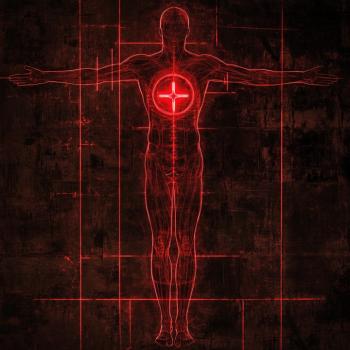
When it comes to the doctrine of Hell, most American Christians know next to nothing about the origins of their own view [Eternal Torment] and even less about other perspectives on the topic.
Here are 7 things that every American Christian needs to know about the doctrine of Hell
1- There have always been 3 “Biblical” Christian views of Hell.
It’s true. Those 3 views are: Universal Reconciliation, Annihilation and Eternal Torment.
Note this reference in the New Schaff-Herzog Christian Encyclopedia which says:
“The earliest system of Universalistic theology was by Clement of Alexandria who was the head of the theological school in that city until 202 A.D. His successor in the school was the great Origen, the most distinguished advocate of this doctrine in all time.” (From the New Schaff-Herzog, page 96, paragraph 2)
“In the first five or six centuries of Christianity there were six known theological schools, of which four (Alexandria, Antioch, Caesarea, and Edessa, or Nisibis) were Universalist; one (Ephesus) accepted conditional immortality; one (Carthage or Rome) taught endless punishment of the wicked.” (From the New Schaff-Herzog, page 96, paragraph 3)
2- The Old Testament [Hebrew] Scriptures never mention Eternal Torment.
If God’s plan for humanity from day 1 was to roast unbelievers for all Eternity, it’s sort of odd that it slipped His mind and He failed to mention this for thousands of years.
Those Old Testament scriptures mention Sheol, but that’s simply the Hebrew word for the grave. No mention of endless torment. Not a whisper.
Does that make any sense?
So, if this idea of Eternal Torment doesn’t come from the Old Testament Prophets, then where does it come from?
I’m glad you asked.
3- The doctrine of Eternal Torment was introduced in the Intertestimental Period by Pagan influences on Judaism.
Hmm…
So, God failed to mention this idea to any of the Hebrew prophets for hundreds of years, but somehow the Pagans had it right?
[Read more about this here]4- The Pharisees of Jesus’ day embraced the Pagan view of Eternal Torment, even though it’s not found in the Hebrew Scriptures.
Wait. The Pharisees embraced this Pagan view?
Wow. So, does it make sense that Jesus would have sided with the Pharisees on a doctrine that the Hebrew Scriptures never mentioned?
Wait, I thought that no one ever preached more about Hell than Jesus? Isn’t that true?
Not exactly.
5- Most of the “Hell” verses in the New Testament are not about what happens to anyone after they die.
It’s true.
Even though Jesus uses phrases like “Where the worm does not die and the fire is not quenched”, and “weeping and gnashing of teeth,” those verses are not about the afterlife.
How do we know? Because those passages are direct quotes from Old Testament Prophets like Isaiah, Jeremiah, Ezekiel, etc. and – as we’ve already established – the Old Testament Scriptures contain no mention of Eternal Torment.
So, if the Old Testament uses those same phrases about undying worms and unquenchable fire, yet never refers to endless torment, then what the heck is going on? What ARE those verses about?
Apocalyptic Hyperbole. Or, the common Hebraic practice of over-stating something in metaphorical language to motivate your listeners to stop and pay attention.
Those verses from the Old Testament prophets were all about actual, real-world invasions of literal armies who were poised to pounce on Babylon, Edom, Egypt and yes, even Jerusalem. Not about what would happen to anyone after they were dead.
Jesus uses that same tried-and-true Apocalyptic Hyberbole to warn the Israelites of his day about a similar destruction that was only 40 years away – the destruction of Jerusalem and the Jewish Temple in AD 70.
[READ MORE HERE]6- If you believe in the Trinity or the Nicean Creed, thank a Christian Universalist for that. [Gregory of Nyssa]
Some Christians today love to hurl the word “heretic” around whenever someone suggests that they embrace Christian Universal Reconciliation. But the problem is, it’s not a heresy. At least, it wasn’t during the first 500 years of Church History.
What’s more Orthodox than the Nicean Creed or the Doctrine of the Trinity? [Right?]
But, most Christians don’t realize that those early Christian doctrines were developed by, and presided over, by people like Gregory of Nyssa who was an openly Universalist Christian.
Oh, snap.
[READ MORE HERE]7- The minority view of Hell for 500 years was “Eternal Torment”? Augustine said so.
“It is quite in vain, then, that some–indeed very many–yield to merely human feelings and deplore the notion of the eternal punishment of the damned and their interminable and perpetual misery. They do not believe that such things will be. Not that they would go counter to divine Scripture—but, yielding to their own human feelings, they soften what seems harsh and give a milder emphasis to statements they believe are meant more to terrify than to express literal truth.”
— Augustine, Enchiridion, sec. 112.
If you doubt this assertion, Theologian and Biblical Scholar, Michael Trenkel clears this up nicely:
“I am a theologian and work in a working group for Patristics at the University of Bonn, and I am also a lecturer with emphasis on early Christian doctrine. Over the last few years, we have been scrutinizing the writings of the earliest Christianity and the patritic writings right up to John Cassianus with a Europe-wide team of over 40 patrons. Our result would be that the patristic universalism actually makes up a large majority, about 85%. Whoever claims otherwise, such as Michael McClymond in his monumental work, from my point of view either simply did not want to have sufficient insight into all available texts or a deliberately one-sided (Calvinistic) defense for his own point of view.
“The argument that the majority can often be wrong, I think here for nonsensical nonsense, because this majority did not arise because this view was the easier. On the contrary, many church fathers and scholars of the later patristic period paid for this conviction with their lives, because an eternal fire of hell was a much desired political decision. We also see this with Jerome. He writes e.g. in his comment on Isaiah, that “the true fate of the so-called damned must of course be withheld from the church, otherwise the church would lose its power.” Here, the early Christian gospel was simply replaced with an everlasting theory of hell more useful to the Church’s power.”
Not only that, but of the 3 views of Hell, Eternal Torment was the only view embraced by early Church leaders who didn’t speak Greek.
That should make you stop and think.
If you’re really curious to learn more about the 3 views of Hell, where they come from, what scriptures support the doctrines, and why the majority of Christians embraced Universal Reconciliation for the first 500 years of Church History, you may want to read my new book, “Jesus Undefeated: Condemning the False Doctrine of Eternal Torment” which is already a #1 Best Seller on Amazon’s “Hot New Releases” list, releasing Nov. 9.
You can read a sample chapter of the book and watch a video interview where I talk about the book HERE.
Bottom line: This lie of Eternal Torment needs to die. I’m doing all I can to breathe life into the “Great News” of the Gospel that is affirmed throughout the New Testament which says:
“God is the savior of all men, especially of those who believe.” [1 Tim. 4:10]
“One day every knee will bow and every tongue will gladly confess that Jesus Christ is Lord to the glory of God the Father.” [Phil. 2:10-11]
“As in Adam, all die, but in Christ all will be made alive.” [Romans 5:19]
“Behold: I am making all things new!” [Acts 3:21; Rev. 21:5]
“That God was, in Christ, not counting our sins against us but reconciling the world to Himself.” [2 Cor. 5:19]
Hell is not an eternal torture chamber, God is not the kind of Father who would toss his children into a furnace, and the Gospel of Jesus is not only “Good News”, it’s fantastically GREAT NEWS!
**

















